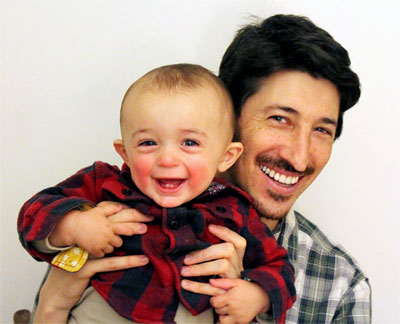February 05, 2014
Interview with Jonathan Greenhause
by Caitlin McGuire
 Jonathan Greenhause's poems, "A Period of Regression," "At the End of Things," and "On Days Like These," appeared in Fjords Review, Volume I, Issue 2.
Jonathan Greenhause's poems, "A Period of Regression," "At the End of Things," and "On Days Like These," appeared in Fjords Review, Volume I, Issue 2.
About Jonathan Greenhause
 Jonathan Greenhause won Prism Review’s 2012-2013 Poetry Prize and was a finalist for this year’s Gearhart Poetry Contest from The Southeast Review. He's received two Pushcart nominations, is the author of a chapbook Sebastian’s Relativity (Anobium Books, 2011), and his poetry has recently appeared or is forthcoming in Artful Dodge, The Malahat Review (CAN), The Moth (IRE), Rabbit (AUS), Willow Review, and elsewhere.
Jonathan Greenhause won Prism Review’s 2012-2013 Poetry Prize and was a finalist for this year’s Gearhart Poetry Contest from The Southeast Review. He's received two Pushcart nominations, is the author of a chapbook Sebastian’s Relativity (Anobium Books, 2011), and his poetry has recently appeared or is forthcoming in Artful Dodge, The Malahat Review (CAN), The Moth (IRE), Rabbit (AUS), Willow Review, and elsewhere.
CM: What inspired "At the Edge of Things"?
JG: Most likely loneliness. I’m not positive, since the poem was written in 2006, and I have no way of knowing exactly what I was thinking and feeling. I spent a lot of those days wondering if I’d ever find love again; I did, but at the time I was frequently by myself. This poem is basically about how the animals in the forest seem to know where they fit in, but we humans are often unable to understand why the hell we’re here.
CM: What's the biggest occupational hazard in writing?
JG: A bad back from poorly-designed non-ergonomic chairs. Getting thrown into jail for political dissidence; in extreme situations, this can include getting executed by the state. Having my eyes hurt from staring at the screen for too long. There are a ton of occupational hazards. Sometimes my hands cramp up from writing—I still do my first drafts by hand, so I won’t be tempted to erase it all and so I’ll have an original copy in case future revisions get out of hand. Sometimes I get paper-cuts on my tongue from sealing envelopes: Hooray for on-line submissions! I should probably add the feelings of incipient depression from going several weeks (or months) at a time without any significant poetry acceptances by my peers.
CM: "A Period of Regression" is a fascinating look at one potential version of the "living dead" story. Why do you think living dead stories (zombies, vampires, Frankenstein, etc.) have been so popular lately?
JG: We're all attracted to the idea of our own possible immortality and, while I must profess to being on quite a zombie kick with my Netflix viewing habits—(I highly recommend Rammbock: Berlin Undead and Juan de los Muertos)—I’ve never thought of “A Period of Regression” as a living-dead story: It’s more like Alejo Carpentier’s “Viaje a la semilla”, a short-story that begins at the end and ends at the beginning. I liked this concept of painting a wall before it’s been constructed.
CM: Name the greatest lesson you learned in school.
JG:Don't give a crap about your grades: Choose the classes you’re interested in, and soak up as much knowledge and wisdom as you can from them. And watch out for wedgies in gym class.
CM: Regarding "On Days Like These"—when best friends marry and move away, where do they go?
JG: Pennsylvania.
CM: How do you choose a poem's title?
JG: I try to come up with something which captures the overall feel for the poem. If that doesn’t work, I use a mix of the 4th, 23rd, 138th, and 256th words from the current Shouts & Murmurs section of “The New Yorker”. If that doesn’t work, I take a phrase from the poem that I’m particularly fond of.
CM: What are you currently working on?
JG: Balancing writing with taking care of a baby. This should be prefaced by a disclaimer warning that having a baby will most definitely result in writing fewer poems. But the baby’s totally worth it. Plus, one day he’ll accomplish all the dreams that I’ve had to put on hold for the foreseeable future. Right? And he’ll probably be grateful for the fact that I clean up his poop.
